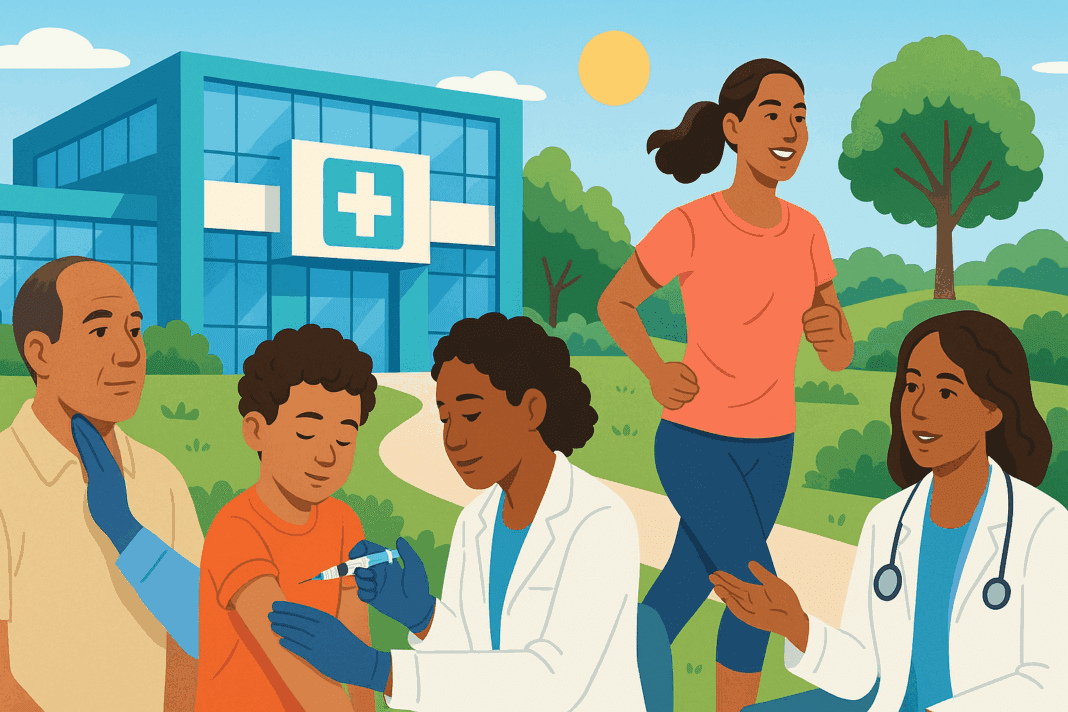Preventive medicine is no longer a fringe concept or a secondary aspect of health care; it is now at the forefront of public health strategy and clinical practice. The health benefits of preventive medicine have become increasingly evident in light of rising health care costs, aging populations, and the increasing prevalence of chronic diseases. Far beyond a set of early screenings or annual checkups, preventive medicine represents a paradigm shift toward anticipating health risks before they manifest into severe or life-threatening conditions. For individuals, families, and entire health systems, this approach translates into healthier lives, fewer hospitalizations, and a significantly improved quality of life.
You may also like: How to Increase Stamina and Endurance Naturally: Smart Training Tips and Nutrition Habits That Support Cardiovascular Fitness
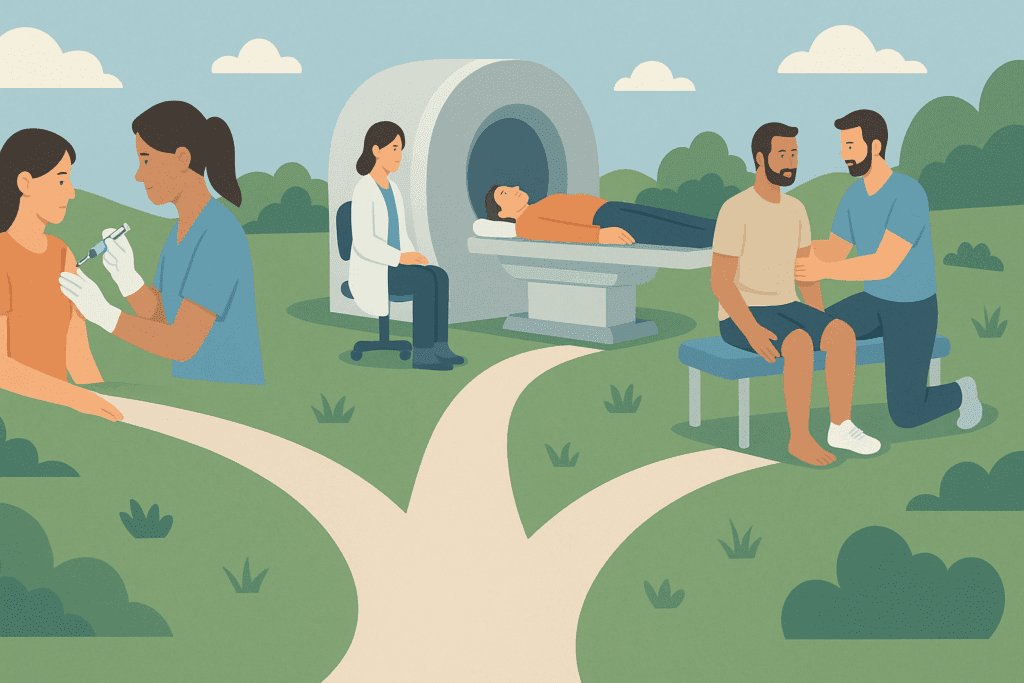
Understanding Preventive Medicine: Definition and Scope
To grasp the transformative impact of preventive medicine, one must first understand its scope and foundational principles. Preventive medicine is a branch of medical science focused on the health of individuals and communities with the goal of preventing disease, disability, and premature death. It encompasses primary, secondary, and tertiary prevention strategies. Primary prevention aims to avert disease before it occurs through measures such as vaccinations, health education, and lifestyle interventions. Secondary prevention focuses on early detection and prompt treatment to halt the progression of illness, often through screenings and diagnostic tools. Tertiary prevention involves managing existing conditions to prevent complications and enhance quality of life.
This tripartite framework illustrates how preventive care works across a spectrum of interventions, beginning well before a patient experiences symptoms. It includes everything from prenatal counseling to cancer screenings to rehabilitation services after a stroke. The preventive healthcare definition, therefore, extends far beyond routine doctor visits; it’s a comprehensive, multi-layered strategy that encompasses physical, mental, and social well-being. By understanding this definition, we can better appreciate why preventive care is essential for achieving optimal health outcomes.
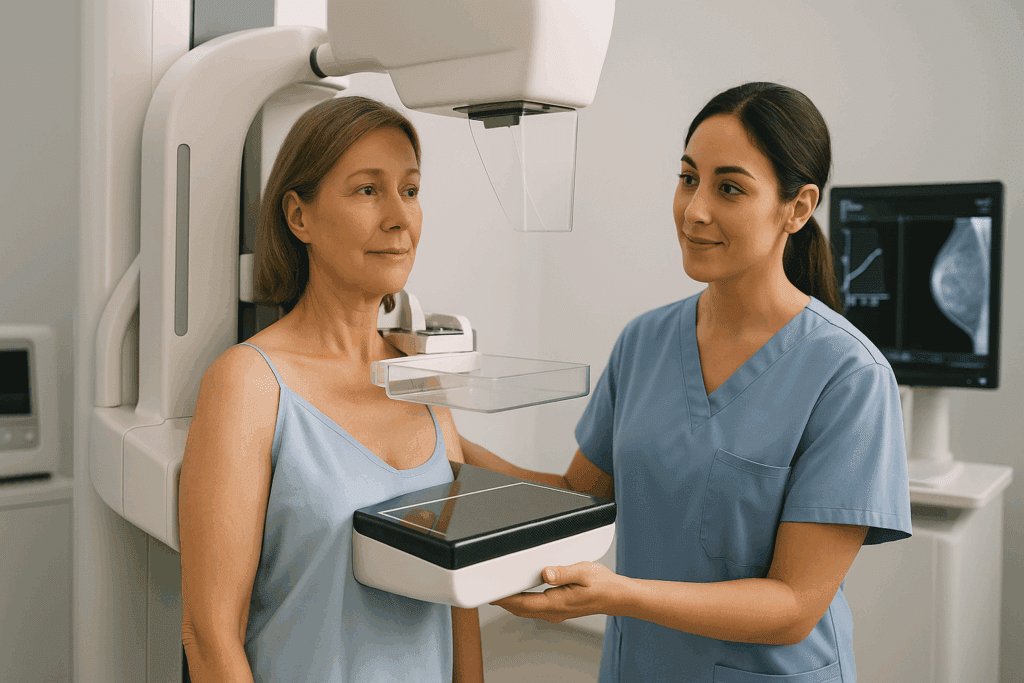
The Critical Role of Early Detection in Modern Healthcare
Early detection lies at the heart of effective preventive medicine. Through targeted screening programs and timely interventions, health care providers can identify conditions such as hypertension, diabetes, or cancer before symptoms arise. This allows for more effective and less invasive treatment options and greatly enhances a patient’s prognosis. For instance, colorectal cancer detected at stage I has a five-year survival rate of approximately 90%, compared to only 14% when discovered at stage IV. Similarly, early detection of type 2 diabetes can prevent the onset of serious complications like neuropathy, vision loss, or cardiovascular disease.
From a systemic perspective, early detection also offers significant cost-saving advantages. Diagnosing and treating conditions in their early stages often requires fewer resources than managing advanced disease. It also reduces the burden on health systems by decreasing hospital admissions and long-term care requirements. These benefits illustrate the importance of preventive health care, especially as chronic diseases continue to challenge both individual well-being and national economies.
The Health Benefits of Preventive Medicine in Chronic Disease Management
Chronic diseases such as heart disease, stroke, diabetes, and cancer are the leading causes of death and disability worldwide. However, many of these conditions are preventable or can be effectively managed through preventive strategies. The health benefits of preventive medicine in this context are particularly profound. For example, lifestyle interventions such as nutritional counseling, physical activity promotion, and smoking cessation programs can significantly reduce the risk of cardiovascular disease.
Preventive screenings for cholesterol levels, blood pressure, and glucose can identify risk factors early, prompting timely interventions. Moreover, preventive care doesn’t just focus on physical health. Mental health screenings and behavioral therapies are vital components, recognizing the intricate link between psychological well-being and chronic disease progression. Preventive medicine thus addresses both the roots and branches of chronic illness, making it a cornerstone of modern, holistic health care.
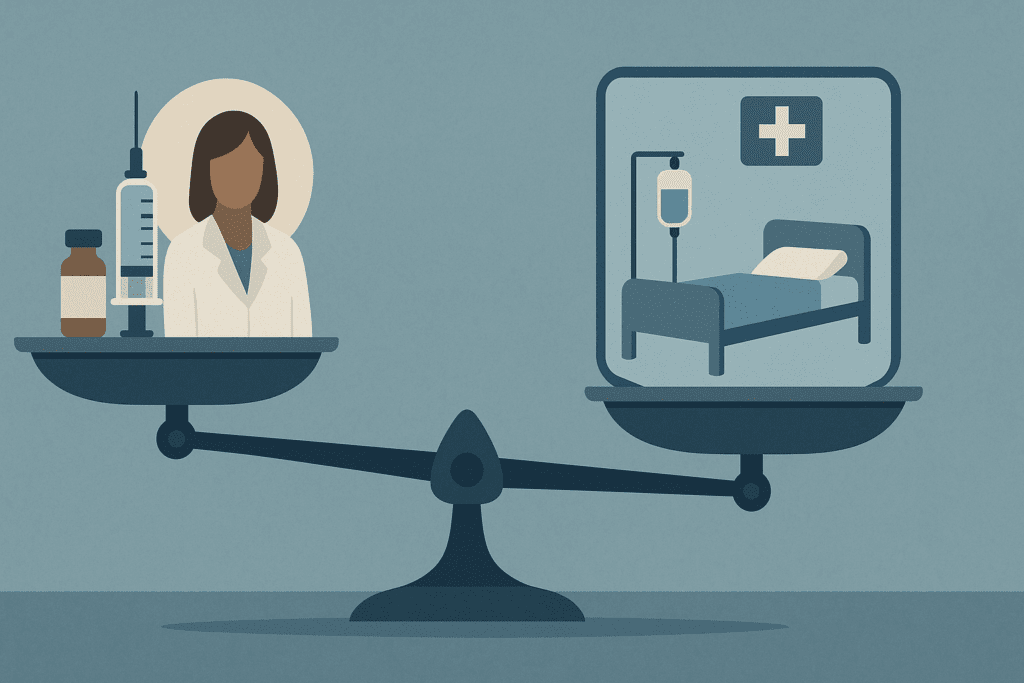
Why Is Preventive Care Important for Long-Term Wellness?
The importance of preventive care is not limited to disease avoidance; it’s about empowering individuals to lead longer, healthier, and more fulfilling lives. Regular check-ups, lifestyle assessments, immunizations, and age-appropriate screenings provide ongoing insight into a person’s health status. This proactive approach enables individuals to make informed decisions about their habits, environments, and treatments.
Moreover, preventive care fosters stronger patient-provider relationships. By engaging patients in their own health maintenance and offering consistent communication, health care professionals can tailor recommendations to each individual’s risk profile and life circumstances. These ongoing partnerships contribute to sustained behavioral change, greater adherence to medical advice, and improved health literacy. All of these factors culminate in better long-term outcomes, affirming why preventive care is important in every phase of life.
Economic Implications: How Preventive Health Care Saves Costs
While the benefits of preventive care for patients are well-documented, its economic value is equally compelling. Preventive health measures often entail relatively low upfront costs compared to the substantial expenses associated with acute and emergency care. For example, a flu vaccine may cost under $50, while treating flu-related complications could amount to thousands in hospitalization costs. Similarly, managing hypertension through medication and lifestyle coaching is far more economical than addressing the consequences of a heart attack or stroke.
Research consistently shows that preventive services such as screenings, vaccinations, and counseling yield high returns on investment. On a national scale, integrating preventive medicine into public health policy can help control spiraling health care expenditures. Businesses also benefit from healthier employees, with reduced absenteeism, increased productivity, and lower insurance premiums. This broad spectrum of economic advantages underscores the importance of preventive healthcare as both a personal and societal imperative.
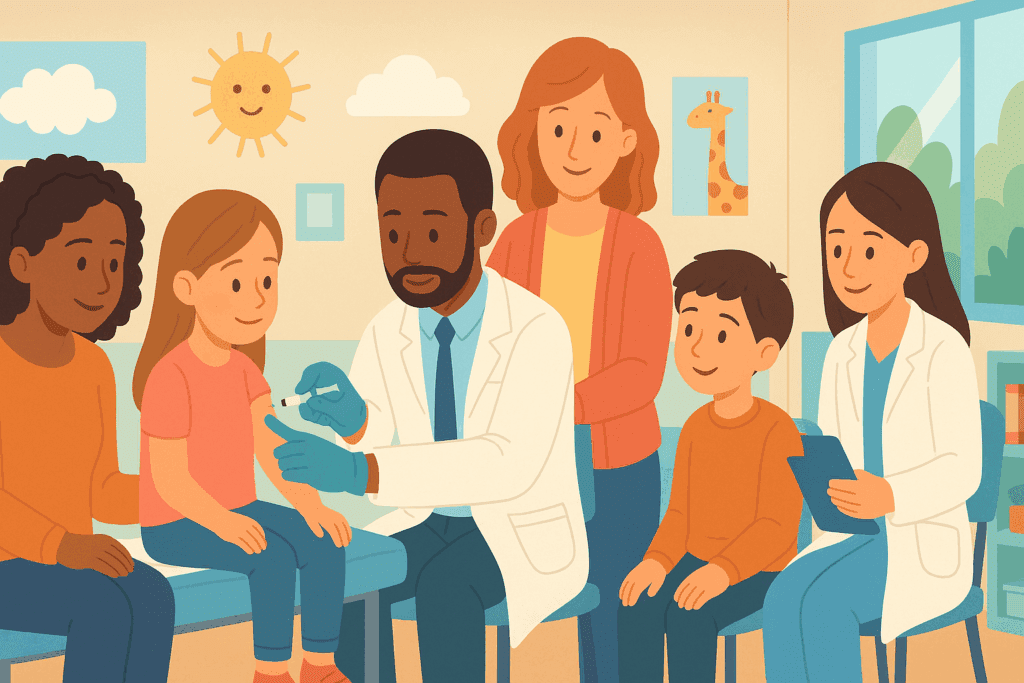
Health Equity and Access to Preventive Services
A crucial component in realizing the full potential of preventive medicine is ensuring equitable access to services. Historically marginalized and underserved populations often face significant barriers to care, including geographic limitations, financial constraints, and systemic biases. These barriers contribute to health disparities that preventive medicine is uniquely positioned to address.
Community health programs, mobile clinics, and telehealth services have proven effective in bridging access gaps. Educational outreach and culturally competent care also enhance trust and engagement, encouraging more people to seek preventive services. When deployed thoughtfully, preventive health strategies can help dismantle long-standing inequities, ensuring that all individuals have the opportunity to benefit from early detection and wellness support.
The Science Behind Prevention: Evidence-Based Guidelines and Tools
The practice of preventive medicine is guided by robust scientific evidence. Organizations such as the U.S. Preventive Services Task Force (USPSTF) and the World Health Organization (WHO) issue evidence-based recommendations for screenings, immunizations, and lifestyle interventions. These guidelines are continually updated based on emerging research, ensuring that care remains effective and relevant.
Technological innovations have further enhanced preventive tools. Genetic testing, wearable devices, and digital health apps allow for real-time monitoring and personalized recommendations. Artificial intelligence is increasingly being used to predict disease risk and tailor prevention strategies accordingly. The integration of technology with evidence-based practice is revolutionizing how preventive care is delivered and expanding the range of tools available to both providers and patients.

Health Benefits of Preventive Medicine for Children and Adolescents
The value of preventive care extends across all age groups, beginning with children and adolescents. Immunizations, developmental screenings, and nutritional counseling form the bedrock of pediatric preventive medicine. By addressing issues such as childhood obesity, behavioral disorders, and infectious diseases early, providers lay the foundation for lifelong health.
Adolescents benefit from preventive counseling on mental health, sexual health, and substance use. These interventions are crucial during formative years when habits and behaviors are still being established. Regular wellness visits during childhood and adolescence not only catch medical issues early but also instill health-conscious values that persist into adulthood. The health benefits of preventive medicine during youth thus resonate well into later life, reducing disease burden and enhancing population health trajectories.
Adult Preventive Care: Building a Lifelong Health Plan
For adults, preventive medicine plays a pivotal role in maintaining vitality, detecting risk factors, and managing health conditions. Services such as mammograms, colonoscopies, cholesterol screenings, and mental health evaluations are essential components of adult wellness plans. These services are often tailored based on age, sex, family history, and lifestyle, ensuring personalized care that aligns with individual risk profiles.
Preventive care also supports reproductive health through family planning, prenatal care, and screenings for sexually transmitted infections. For older adults, fall risk assessments, osteoporosis screenings, and cognitive evaluations gain prominence. These measures are vital in preserving independence and quality of life as one ages. By making preventive care a lifelong priority, adults can better navigate health challenges and maintain function well into their senior years.
Mental and Emotional Wellness in Preventive Health Care
An often underappreciated facet of preventive care is its impact on mental and emotional well-being. Mental health screenings, stress management education, and behavioral therapies are integral components of comprehensive preventive strategies. These services not only address psychiatric conditions such as depression and anxiety but also contribute to better management of physical illnesses, given the bidirectional relationship between mind and body.
Early intervention in mental health can significantly reduce the severity and duration of disorders, improve coping skills, and enhance overall resilience. Moreover, preventive strategies that focus on emotional wellness can mitigate the risk of substance abuse, relationship problems, and workplace burnout. Recognizing the importance of preventive care in the mental health domain ensures a more holistic approach to individual and public health.

The Preventive Approach in Workplace and Occupational Health
Employers and organizations are increasingly embracing preventive health care as part of their wellness initiatives. On-site screenings, fitness programs, and mental health resources contribute to healthier, more productive workforces. By integrating preventive strategies into employee benefits and workplace culture, organizations can reduce absenteeism, lower insurance costs, and improve morale.
Occupational health specialists also play a crucial role in injury prevention and health promotion within specific industries. Ergonomic assessments, hazard controls, and vaccination campaigns all fall within the purview of workplace preventive medicine. These proactive efforts not only protect workers but also enhance organizational resilience and operational efficiency.
Public Health Campaigns and the Importance of Preventive Health Care
Public health campaigns have long been instrumental in promoting preventive care and shaping societal attitudes toward wellness. Initiatives such as anti-smoking efforts, nutrition labeling, and vaccination drives have had profound impacts on population health. These campaigns leverage mass communication, policy advocacy, and community engagement to effect behavioral change at scale.
The importance of preventive health care in these efforts cannot be overstated. Campaigns are most effective when they are evidence-based, culturally sensitive, and supported by accessible services. For instance, a campaign to reduce obesity must be accompanied by access to healthy foods and physical activity spaces. When aligned with policy and infrastructure, public health initiatives can drive lasting improvements in health behaviors and outcomes.
Integrating Preventive Medicine into Health Education and Policy
Educating the public about the benefits of preventive care is essential to its widespread adoption. Health literacy programs in schools, workplaces, and communities can demystify medical concepts and empower individuals to make informed decisions. Training for health professionals should also emphasize preventive approaches, ensuring that future clinicians are equipped to guide patients in proactive health management.
Policy makers play a critical role in embedding preventive medicine into health systems. Coverage mandates, funding for community programs, and incentives for preventive services can create an environment that prioritizes wellness. Health policies should reflect the long-term value of prevention and allocate resources accordingly. Such systemic support is crucial to realizing the full potential of the health benefits of preventive medicine.
Frequently Asked Questions: Unlocking the Health Benefits of Preventive Medicine
How do the health benefits of preventive medicine extend to family and community well-being?
Preventive medicine isn’t just a personal health choice—it’s a public health investment. When individuals commit to regular screenings, vaccinations, and healthy lifestyle habits, they reduce the risk of spreading contagious diseases within families and communities. For example, widespread immunization campaigns have historically led to herd immunity, protecting vulnerable populations such as infants, the elderly, and the immunocompromised. Furthermore, parents who prioritize preventive health routines often model healthy behavior for children, influencing generational attitudes toward wellness. In turn, these community-level efforts foster a culture of prevention, reducing long-term disease prevalence and encouraging more proactive public health policies.
What are some innovative technologies transforming preventive health care today?
Emerging technologies are reshaping the landscape of preventive medicine, allowing for earlier and more personalized detection of disease. Wearable devices now monitor heart rate variability, sleep quality, and activity levels, offering real-time insights that encourage behavioral change. Genetic screening tools can identify predispositions to specific illnesses, enabling targeted lifestyle interventions long before symptoms appear. Artificial intelligence is increasingly used to analyze complex health data and predict patient risk, helping clinicians design tailored prevention plans. These tools, when integrated with electronic health records and patient portals, enhance the efficiency and precision of preventive health strategies while empowering individuals to take ownership of their well-being.
Why is preventive care important in reducing health disparities across different populations?
The importance of preventive health care becomes even more evident when addressing health disparities. Marginalized communities often experience reduced access to quality care due to socioeconomic barriers, geographic isolation, or language and cultural differences. Preventive care initiatives—such as mobile health units, telemedicine platforms, and community-based outreach—can bridge these gaps by bringing services directly to underserved populations. Culturally tailored health education also builds trust and engagement, increasing participation in screenings and vaccinations. As a result, preventive healthcare efforts not only improve individual outcomes but also advance equity by narrowing the gap in health status across different social groups.
How can employers better support the health benefits of preventive medicine in the workplace?
Workplaces are powerful venues for promoting the health benefits of preventive medicine. Employers can offer on-site health assessments, flu shot clinics, and mental wellness workshops, making preventive care both convenient and normalized. Incentivizing participation through wellness credits or insurance discounts further boosts engagement. Additionally, cultivating a culture that prioritizes health—such as by encouraging breaks for movement, offering nutritious food options, or supporting flexible scheduling for medical appointments—reinforces preventive behaviors. When employees have consistent access to such resources, they are more likely to detect issues early and manage chronic conditions effectively, resulting in reduced absenteeism and higher job satisfaction.
How does understanding the preventive healthcare definition help tailor care across life stages?
A nuanced understanding of the preventive healthcare definition helps providers and individuals align interventions with age-specific needs. In pediatrics, this might mean vaccinations and developmental screenings, while adolescence calls for emotional and reproductive health support. During adulthood, the emphasis shifts to metabolic monitoring, cancer screenings, and cardiovascular risk management. In older adulthood, preventive care includes fall risk assessments, cognitive evaluations, and management of polypharmacy. Recognizing that prevention evolves with life’s milestones allows for a more strategic, dynamic, and responsive health plan that respects individual needs at every stage of development.
In what ways does preventive medicine impact mental health care access and outcomes?
Preventive medicine is increasingly integral to mental health care, which often suffers from delayed intervention and social stigma. Incorporating routine mental health screenings into primary care normalizes emotional wellness and facilitates earlier diagnoses. Preventive strategies such as mindfulness programs, stress-reduction techniques, and resilience training can lower the risk of developing chronic psychological conditions. Moreover, digital platforms offering confidential therapy or mood tracking reduce barriers to seeking help. The importance of preventive healthcare in mental wellness lies in its capacity to intervene before crises emerge, enabling individuals to maintain emotional balance and seek treatment with less hesitation.
What are the long-term societal implications of widespread adoption of preventive medicine?
Broad adoption of preventive medicine carries far-reaching implications for societal resilience and sustainability. A healthier population places less strain on emergency rooms, long-term care facilities, and health insurance systems. Productivity gains are realized as people experience fewer sick days, longer working years, and enhanced cognitive function. Preventive strategies also reduce the intergenerational burden of disease by lowering childhood exposure to harmful environments and reducing inherited risk factors. In the long term, countries that invest in prevention tend to experience more stable economies, improved educational outcomes, and greater social cohesion due to reduced health-related inequality.
Why is preventive care important for managing environmental and occupational exposures?
The importance of preventive care becomes especially critical in identifying and mitigating risks related to environmental toxins and occupational hazards. Workers in agriculture, construction, and manufacturing may be exposed to chemicals, dust, or repetitive strain injuries that can result in chronic conditions if unaddressed. Preventive measures—like ergonomic assessments, protective equipment mandates, and regular health monitoring—help catch early signs of occupational illnesses such as asthma or musculoskeletal disorders. Similarly, monitoring air and water quality in high-risk communities allows for interventions that prevent long-term exposure-related illnesses. This proactive surveillance is key to maintaining population health in a rapidly changing environment.
How do social determinants of health intersect with the importance of preventive health care?
Social determinants such as income, education, housing, and transportation deeply influence access to and efficacy of preventive health care. For instance, a person living in a food desert may struggle to follow dietary recommendations, even after receiving sound medical advice. Preventive strategies that fail to consider these contextual barriers often fall short of their intended impact. Innovative programs that incorporate social support—such as transportation vouchers, school-based health centers, or community gardens—enhance the real-world applicability of preventive care. Understanding the interplay between structural factors and individual behavior is crucial for optimizing the health benefits of preventive medicine across all communities.
Health Benefits of Preventive Medicine: What Role Will Personalized Prevention Play in the Future?
As health care advances, personalized prevention is poised to redefine the health benefits of preventive medicine. Instead of one-size-fits-all checklists, future models will leverage individual genetic data, biometric trends, and lifestyle patterns to craft uniquely tailored health plans. For example, someone with a genetic marker for high cholesterol may begin lipid screenings earlier and adopt dietary interventions more rigorously than standard guidelines suggest. Machine learning algorithms will further refine risk assessments, predicting disease trajectories with increasing accuracy. This evolution makes preventive care not only more precise but also more engaging, as patients receive recommendations that resonate with their unique experiences and needs.
Rethinking the Importance of Preventive Health Care in the Post-Pandemic World
The COVID-19 pandemic has spotlighted the urgency of preventive strategies on both individual and global scales. Delayed screenings, missed vaccinations, and rising mental health issues during lockdowns have highlighted vulnerabilities in health systems overly reliant on reactive care. In response, public and private sectors are reinvesting in robust preventive infrastructure, including contact tracing, telemedicine, and remote monitoring tools. The importance of preventive health care now encompasses pandemic preparedness, emphasizing early surveillance, behavioral adaptability, and community resilience. As we rebuild post-pandemic systems, embedding the principles of prevention into everyday life will be vital for sustaining global health and preventing future crises.
Conclusion: Embracing the Full Potential of Preventive Medicine for a Healthier Future
As we navigate increasingly complex health challenges, from chronic diseases to global pandemics, the case for preventive medicine has never been more compelling. The health benefits of preventive medicine span the entire spectrum of care—from reducing disease incidence to improving mental wellness to alleviating financial burdens on individuals and health systems. Early detection, personalized interventions, and sustained education form the pillars of this transformative approach.
Understanding the preventive healthcare definition helps clarify its scope, while recognizing why preventive care is important strengthens the case for its universal implementation. By embracing the importance of preventive health care in clinical practice, public policy, and personal lifestyle, we pave the way for a more resilient, equitable, and vibrant society. Preventive medicine is not merely a strategy; it is an essential commitment to sustaining life, dignity, and well-being for generations to come.

